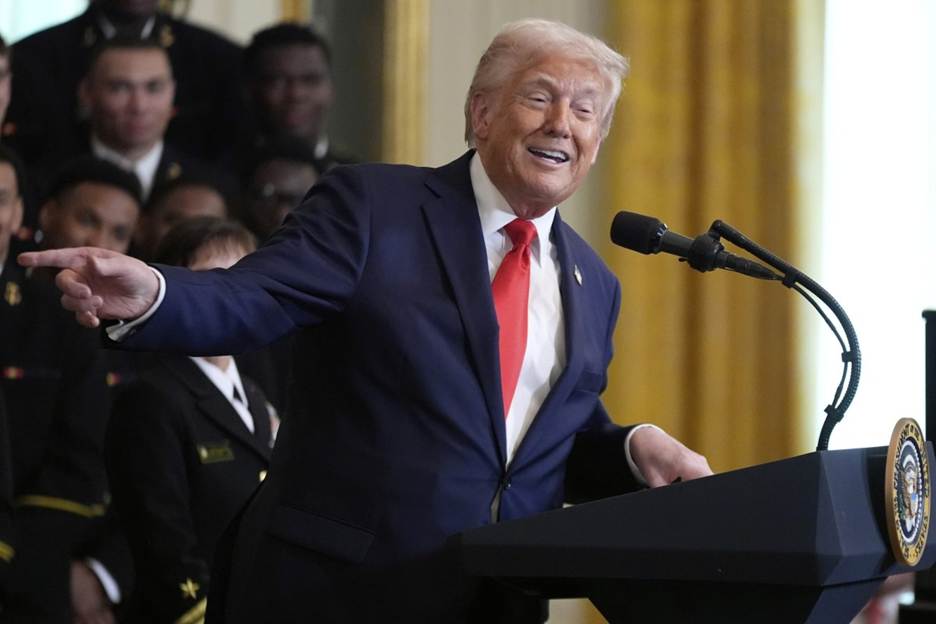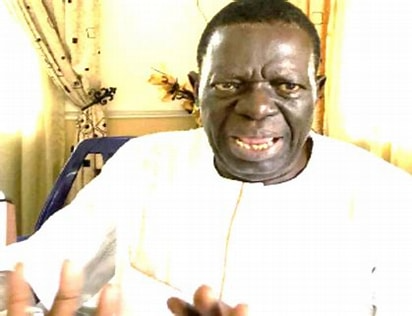
President Donald Trump speaks in the East Room of the White House on April 15, 2025, in Washington D.C. Manuel Balce Ceneta/AP
Donald Trump has set a new, and unwelcome, benchmark in his presidency. According to fresh polling data, his net approval rating among independent voters has sunk to a record low, surpassing even the most unfavorable numbers from his previous term.
Why It Matters
Independent voters often decide the outcome of national elections, and Trump’s record-low approval among this group signals potential trouble ahead—not just for his own political capital, but for Republicans heading into the 2026 midterms.
What To Know
According to CNN pollster Harry Enten, Trump’s net approval rating among independents has gone from negative 16 percent in 2017 to negative 22 percent in 2025, meaning the president has “broken his own record.”
Independent voters were a key pillar of Trump’s coalition in the 2024 election, with 46 percent backing him—up from 41 percent in 2020, when a majority (54 percent) voted Democrat. But that support appears to be eroding in the wake of the president’s sweeping tariff announcement on April 2, which rattled the markets before a partial pause temporarily stabilized them.
Since then, however, Trump’s approval among independents has not recovered.
Newsweek’s analysis of every poll conducted after April 2 that includes independent voter data finds his net approval currently stands at -17 points, with just 37 percent approving and 54 percent disapproving. His lowest rating came from a YouGov poll conducted April 7–10, where only 30 percent of independents approved of his performance while 61 percent disapproved—a net approval of -31 points.
| Poll | Date | Approve | Disapprove |
| YouGov/Economist | April 13-15 | 32 | 56 |
| J.L. Partners | April 10-14 | 39 | 43 |
| Echelon Insights | April 10-14 | 44 | 52 |
| Harvard-Harris | April 9-10 | 40 | 48 |
| CBS/YouGov | April 8-11 | 39 | 61 |
| YouGov | April 7 – 10 | 30 | 61 |
| Quantus | April 7-9 | 39 | 53 |
| University of Massachusetts | April 4-9 | 31 | 53 |
| Cygnal | April 1-3 | 43 | 55 |
| Navigator Research | April 3-7 | 33 | 56 |
The most recent YouGov/Economist poll from April 13–15 showed similarly low numbers: 32 percent approval versus 56 percent disapproval, for a net -24 points. Other recent polls place his net approval among independents between -4 and -22 points.
A Flourish chart
Trump’s standing with independents on economic issues is also deteriorating. According to Enten, the president has fallen from a positive net approval of +1 in January to negative 29 percent when it comes to backing for his handling of the economy among independents, indicating that the group opposes tariffs.
“They don’t like anything that’s coming out of Donald Trump‘s [mouth] right now, absent maybe immigration, but when it comes to the economy, when it comes to overall, when it came to tariffs, it’s a threesome for negativity among independents,” Enten said. “They oppose, oppose, oppose. They, simply put, do not like the words that are coming out of Donald’s Trump’s mouth.”
Polling on the tariff issue confirms the backlash. A HarrisX poll shows only 37 percent of independents support Trump’s new duties, while 49 percent are opposed. Still, opinions are mixed on whether tariffs are necessary: half of independents believe they’re essential for fair global trade, while the other half disagree. In a separate Quantus poll, 50 percent of independents opposed reciprocal tariffs, compared to 43 percent in favor.
On the broader economy, independents are increasingly pessimistic. Only 26 percent believe the economy is on the right track, according to HarrisX. In the YouGov/Economist poll, 50 percent disapprove of Trump’s economic handling, while just 36 percent approve. The CBS/YouGov poll shows even more discontent: 64 percent disapprove of Trump’s economic stewardship.
There are also concerns about inflation among independent voters. The You/Gov CBS poll shows that 68 percent oppose Trump’s handling of inflation. Meanwhile, just 32 percent approved.
The HarrisX poll showed that 49 percent of independent voters feel their personal financial situation is getting worse, while 22 percent said it is improving.
Meanwhile, the latest Echelon Insights poll found that 68 percent of independents are very or a little concerned about the impact of tariffs.
On Tuesday, the chief executive of Goldman Sachs, David Solomon, warned that the chances of a U.S. recession have increased in the wake of Trump’s tariffs and that an escalating trade war poses “material risks” for U.S. and global growth.
“We are entering the second quarter with a markedly different operating environment than earlier this year,” he told analysts during an earnings call.
“The prospect of a recession has increased, with growing indications that economic activity is slowing down around the world.”
What People Are Saying
Thomas Gift, an associate professor of political science and director of the Centre on U.S. Politics at University College London, told Newsweek: “It’s hard not to think that Trump’s precipitous dips in approvals among independents is due to economic anxiety.
“His scorched-earth approach to the global trade system has injected huge convulsions into financial markets, stoking inflation and, in the eyes of many economists, laying the groundwork for the dreaded ‘r’ word—recession.”
Brett Loyd, president and CEO of polling company The Bullfinch Group, told Newsweek: “The first 90 days of his first term, his job approval dropped a net 8 points. While his job approval started higher in his second term, it has plummeted faster (about a net negative 10 points in the first 90 days).
“Self-identified Democrats and Republicans aren’t the ones moving these numbers by and large—it’s Independents. Independent voters who were geared to give him a chance to lower inflation ‘on day one.’ That hasn’t happened. And worse, some are beginning to feel that the economy isn’t just failing to move in the right direction, it’s actually headed in the wrong one.
“Independents are independent-minded thinkers—they don’t have to approve of Trump just because he’s Team Red, or disapprove of him because they’re Team Blue. They see the economy isn’t getting better, that there’s chaos in Washington, and think, ‘Hey, that’s not what we were hoping for.’ They’ll give you a chance, but you gotta perform.”
What Happens Next
As the effects of his economic, immigration and other major policies come into sharper relief, Trump’s approval rating is likely to remain changeable. (Newsweek)
